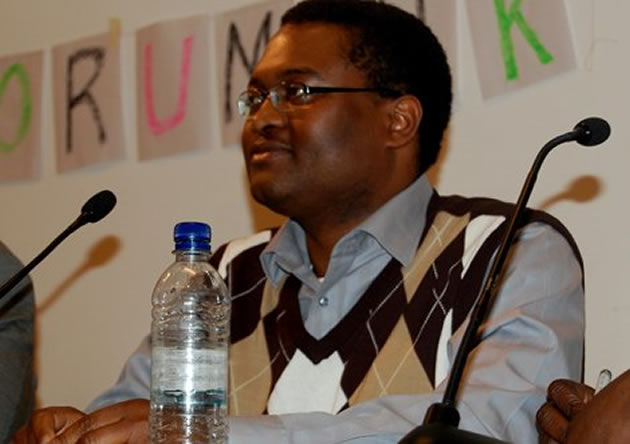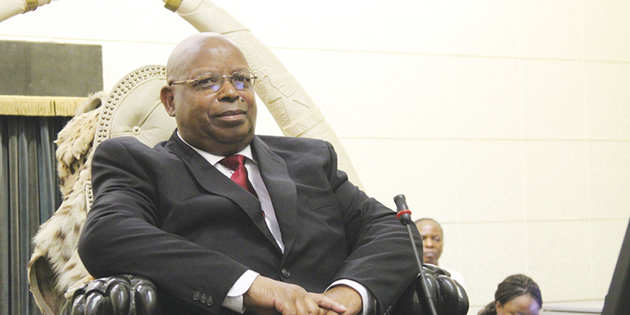Ex-advisor speaks on Tsvangirai• . . . he lacks strategy: Magaisa • ‘. . . election boycott ill-timed’

Tichaona Zindoga Political Editor
MDC-T leader Morgan Tsvangirai lacks strategy to unseat Zanu-PF and his decision to boycott elections is ill-timed as the party does not have a viable alternative, the former Prime Minister’s erstwhile advisor Dr Alex Magaisa has said.
He told The Herald in a wide-ranging interview that MDC-T failed to pursue purported reforms during the inclusive Government era because it had been “comforted by luxuries of office”.
“That decision (to boycott elections) would have made more sense in 2013,” he said.
“Further, I also believe that when you take a position such as a boycott, it makes sense only if you have a back-up plan.
“You have to say, you are boycotting, but you are also doing A, B, C, D, to ensure that your demands for reforms are met. Otherwise you will remain in a perpetual state of boycott. Or if you eventually change your mind after many boycotts, people will say, but why did you waste all those opportunities boycotting elections?
“Knowing Zanu-PF, I think it’s hoping for too much to expect it to ignite reforms simply because of a boycott without more. You have to apply pressure and to do more to bring about the needed reforms,” he said.
He said the inclusive Government brought opportunities for the opposition to push for reforms they desired.
“When the GNU came, I was one of its biggest supporters because I believed it was an opportunity for the opposition to bring some influence into Government and to promote reforms from within the system. But the opposition remained the opposition,” said Dr Magaisa.
“They were always outsiders, like distant relatives at a wealthy cousin’s wedding. It was a difficult experience, partly because the Global Political Agreement was not very well negotiated and it left Zanu-PF with a lot more power than the results of the 2008 elections allowed.
“The result was that constrained by the protocol of office and comforted by the luxuries of office, the MDC was not able to use its vantage position to influence many reforms.
“It is very hard, now that they are out of Government, to see how these reforms can be achieved to full satisfaction,” said the academic.
But the major undoing of the party is lack of strategy to defeat its more seasoned opponent.
“If strategy is an issue, then it is that the MDC has yet to find the formula to unlock Zanu-PF’s grip on political power… The MDC has not found the formula to breach this and this has been a key impediment in the path towards power. The MDC almost got there in 2008 but again they found Zanu-PF too hard and impossible to overcome,” Dr Magaisa explained.
The UK-based lawyer did not fancy the prospects of expelled Zanu-PF members Messrs Rugare Gumbo and Didymus Mutasa who are all over the place in the private media canvassing for support for a political project they purport would be led by ousted former vice President Mujuru.
“They were part of the same system that they are now castigating, so when they speak it sounds like a case of sour grapes,” said Dr Magaisa.
His remarks came hard on the heels of a survey by the think tanks Afrobarometer of South Africa in conjuction with Zimbabwe’s Mass Public Opinion Institute that found out that while President Mugabe enjoyed 63 percent of Zimbabweans, the opposition was trusted by only 34 percent.










Comments